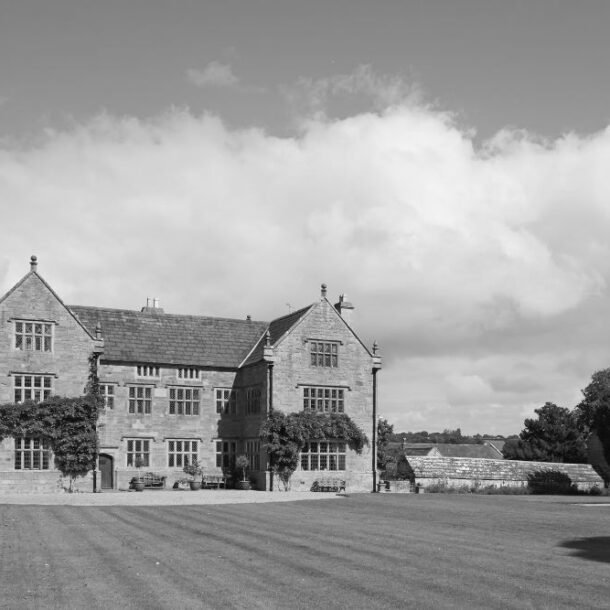

Close

Richard Perceval established the Perceval family in Ireland, but not until he had completed his adventures in Spain and England. As a young man, Richard had a habit of disregarding his father’s advice. So when he frustrated his family’s plots for a profitable marriage by marrying a pretty young widow without a penny to her name, his father promptly disinherited him. He told Richard that as he had “ruined himself by his riots, to recover himself by his wits.”
Richard found himself without any means to finish his education or establish himself and his new wife in England, so he took off for Spain. He worked as an agent for an English merchant in the years when Spain dominated trans-Atlantic trade and the British privateers were a pesky (and expensive) thorn in its side. He learned Spanish by immersion and with time fell in love with the expressive, dynamic language.
His life in Spain became perilous when England and Spain declared war on one another. So, likely unwillingly, Richard left his adopted country and returned to Somerset and the not-so-open arms of his father. He made a penitent attempt at reconciliation, was unceremoniously rebuffed, and took a post at his old school. In England, he put his energy into one of the earliest complete English-Spanish-Latin dictionaries and grammars. He leaned on his own knowledge, as well as the scathing denunciation of Spanish imperialism by the Dominican priest, Bartolomeo de las Casas.
Spanish was the language of the most powerful empire of the 16th century, but few Englishmen spoke it. The English elite was far more interested in French, the language of the extravagant and glamorous French court. Richard’s book was also an argument as to why Englishmen should study Spanish, and in the opening pages he wrote a poem urging his cause:
Though Spanish lay long aside within our British Ile
(Our Courtiers liking nought save French, or Tuscane stately stile
Yet now at length, (I know not how) steps Castile language in,
And craves for credit with the first, though latest the begin:
Who lifts noy yeeld to neither both, of those rehearst before,
But jumps as stately and as sweet, or rather more:
As full of prety proverbs, and most dainty privie (i.e. private) quips,
Of grave advices, bitter taunts, and passing gawling nips.
Though learned pens in Italy and France do florish moree,
And in our happy Britaine, where are learned men such store:
Yet Spanish speech lifts give no ground: which here by painful hand
Of Percival, is open laid, for all to understand,
And soon to speak and write the fame, by practice in his book:
In practice, yeeld him praise and thanks, for thee such paines that took
Then thanks, nought else he doth require, though more he do desire:
He lets before thee store of cates, spare not, but like and carve.
In 1588, Richard’s fluency in Spanish served the English in a moment of crisis. Philip II of Spain had ordered the Spanish Armada, a massive fleet of armed galleons, to attack England, dethrone Elizabeth I, and reestablish Catholicism. Fast, deft English vessels—and the strategic deployment of burning ships—dispersed and destroyed the Armada and humbled the Spanish empire. In the midst of the chaos of the impending invasion, the English captured Don Pedro de Valdés, a Spanish aristocrat and commander of the Andalusian division of the Armada. The English wanted to interrogate him, but it was pointless because they couldn’t find anyone to translate. Then, they found Richard and he helped the English attain critical intelligence from Don Pedro. Once Richard had regular access to prisoners from the Armada, he took the opportunity to get native speakers’ input on his dictionary.
Richard, now about 30, sought out a more stable position. He found a comfortable job serving Sir Robert Cecil—Elizabeth I and then James I’s closest advisor. He served in the Court of Wards, the branch of the judiciary that presided over the estates of minors under the protection of the Crown. As was expected of officials with easy access to land and money, he dolled out favors and land to his family and friends. His father, seeing his son had indeed recovered himself by his wits, re-owned him.
Still, Richard made things difficult for himself, so difficult that he had to rebuild his life once more in Ireland. Sir Robert Cecil helped him attain a seat in Parliament. Richard, like many Englishmen, was wary of the Scottish James I taking the throne after Elizabeth I’s death and the entourage of Scottsmen he brought in tow. In a vitriolic speech in Parliament, Richard condemned “an inundation, or deluge” of Scottish nobles so great that “we shall use nothing as our own”—all because James I had suggested he be called King of Great Britain instead of King of England. Richard’s comments did not warm him to the new Scottish elite. After Sir Rober Cecil died, Richard found himself without a position and with few friends in power. So, he sold his family’s Somerset estate, which may have been in the family as long as 500 years, and set off to Dublin to serve in Ireland’s new Court of Wards. His descendents became a prominent family in Ireland and later took up residence at Temple House.